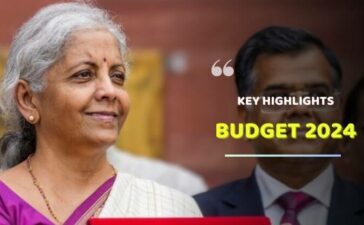Starting from April 1, 2017, some income tax laws changed. Finance Minister Arun Jaitley had announced a number of income tax changes in Budget 2017.
Here Is What You Need To Know
1. For those who earn an income between Rs. 2.5 lakh and Rs. 5 lakh, the tax rate will get halved to 5 per cent from 10 per cent. However, rebate under Section 87A gets reduced from Rs. 5,000 to Rs. 2,500. And no rebate will be applicable for taxpayers having income above Rs. 3.5 lakh. There is tax saving of up to Rs 12,500 per year and Rs 14,806 (including surcharge and cess) for those with income above Rs 1 crore.
2. Tax rebate is reduced to Rs 2,500 from Rs 5,000 per year for taxpayers with income up to Rs 3.5 lakh (earlier Rs 5 lakh). Due to the combined effect of change in tax rate and rebate, an individual with taxable income of Rs 3.5 lakh will now pay tax of 2,575 instead of 5,150 earlier.
3. Surcharge at 10 per cent of tax levied on rich taxpayers, with income between Rs 50 lakh and Rs 1 crore. The rate of surcharge for the super rich, with income above Rs 1 crore, will remain 15 per cent.
4. A simple one-page tax return form is to be introduced for individuals with taxable income up to Rs 5 lakh (excluding business income). Those filing returns for the first time in this category will generally not be subject to scrutiny.
5. Income tax officials can reopen tax cases for up to 10 years if search operations reveal undisclosed income and assets of over Rs. 50 lakh. Taxpayers who do not file their returns on time will have to shell out a penalty of up to Rs. 10,000 from Assessment Year 2018-19. However, if the total income of the person does not exceed Rs. 5 lakh, the fee payable under this section shall not exceed Rs. 1,000.
6. Holding period for immovable property to be considered "long term" is reduced to two years from three years. This will help save tax if a property is sold within two years of buying. However, the profit from the transaction will be treated as short-term capital gains and will be taxed according to the slab rate applicable to him/her.
7. As per current tax laws, for properties rented out, a borrower could deduct the entire interest paid on home loan after adjusting for the rental income. On the other hand, borrowers of self-occupied properties get a deduction of Rs. 2 lakh on interest repayment on home loan. But on rented properties, the borrower can only claim a deduction of up to Rs. 2 lakh per year after adjusting for the rental income. And the amount above Rs. 2 lakh can be carried forward for eight assessment years.
8. Individuals will be required to deduct a 5 per cent TDS (tax deducted at source) for rental payments above Rs. 50,000 per month. Tax experts say that the move will ensure that persons who get a large rental income come into the tax net. It will be effective from June 1, 2017.
9. According to the proposed changes, National Pension System (NPS) subscribers can withdraw 25 per cent of their contribution to the corpus for emergencies before retirement. Remember that withdrawal of 40 per cent of the corpus is tax-free on retirement.
10. Deduction for first-time investors in listed equity shares or listed units of equity oriented fund under the Rajiv Gandhi Equity Savings Scheme is withdrawn from 2017-18. If an individual has already claimed deduction under this scheme before April 1, 2017, he/she shall be allowed to avail a deduction for the next two years.
To curb black money, the limit on cash transactions has been set at Rs. 2 lakh. The Finance Bill had originally proposed the cap at Rs. 3 lakh. If a person receives any sum in contravention of the tax law, he/she will be liable to pay, by way of penalty, a sum equal to the amount.
While applying for PAN as well as filing of income tax returns from July 1, Aadhaar number will be a must. Get your Aadhaar card.















